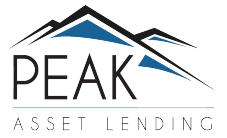When you’re shopping around for a loan, you’ll discover that there are different types of property loans. One category is the government programs you’ve heard about like VA, Freddie Mac and Fannie Mae, called Government Sponsored Enterprises (GSEs). Another category includes traditional, credit-based loans that evaluate the borrower based on debt-to-income ratios, credit score and similar borrower merits. These typically are not government-backed loans and are considered open-market loans. This category includes most banks and some private lenders.
Seeing as this post is about asset-based loans, you’re probably wondering where asset-based loans fit. Like the name implies, asset-based loans rely on the property as collateral for the loan. Because of that, asset-based loans are a separate category that is typically offered by private lenders and some banks. Now that you know more about the categories of loans, we can look closer at asset-based loans.
Asset-based Loan Merits
In order to get an asset-based loan, lenders look at a few different merits, such as collateral, cash flow, equity and investment strategy. Instead of focusing only on the borrower’s credit, asset-based loans use business or real estate assets as collateral (focusing on cash flow and equity).
Asset-based loans also consider investment strategy. Asset-based loans place more emphasis on the investment property value and its potential to create income rather than the borrower’s personal income. As part of the loan evaluation, the borrower is evaluated but not necessarily underwritten in the loan. The lender wants to ensure that the borrower isn’t being set up to fail.
Non-recourse vs. Recourse Lending
Peak specializes in non-recourse loans and those clients who require non-recourse financing such as self-directed IRAs and foreign national borrowers. Non-recourse lending is a subset of asset-based loans. However, not all asset-based loans are non-recourse loans. A non-recourse loan means that if a borrower defaults on their loan, they can pursue the collateral (foreclose on the property) but can’t pursue the borrower. A recourse loan holds the borrower personally liable in the case of a default.
For example, Joan borrowed against her (SDIRA) self-directed individual retirement account to purchase a $200K investment property using a non-recourse, asset-based loan. A few years later she defaulted on the loan and currently has $1 million in her IRA. The lender can’t go after the money in her IRA because of the type of loan. Instead, they foreclosed on her investment property.
Use an Asset-based Loan to Grow Your Real Estate Business
You can use asset-based loans to expand your real estate portfolio without the limitations of other loan programs. The more investment properties you own, the more revenue potential. However, owning more investment properties is also more of a burden because you have more mortgages. As a result, a bank might see that you’re credit worthy, but you have too many mortgages for a GSE loan. GSEs have caps so you’re limited on the number of investment properties you can have. Instead, you can sidestep GSE limitations by getting an asset-based loan for your investment property.
Have Additional Questions?
Peak Asset Lending assists a variety of entities and individuals with investment property lending. Peak Asset Lending provides real estate loans for residential investment property. Our specialization allows us to focus on each borrower’s unique situation. You get a lender that understands you and your goals and loan preferences. We focus on investment property loans, so if you have additional loan or investment property questions, we’re always available to help.


Very informative!
Awesome! Thanks for sharing this post. It is an interesting post for everyone. I like it.